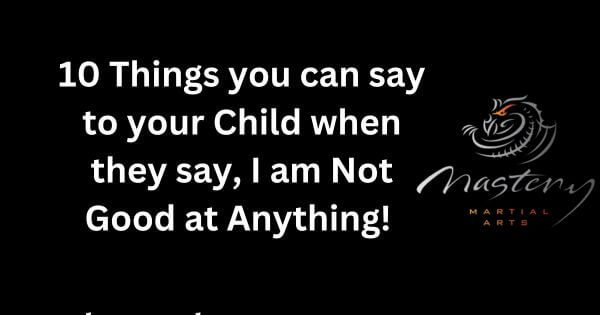Helping Your Child Recognize Their Inner Strengths
As a parent, it’s disheartening to hear your child utter the words, “I’m not good at anything.” When this moment arises, it is crucial to address their feelings with both sensitivity and encouragement. Here, we’ve outlined ten affirmations that you can tell your child to help them recognize their inner strengths and inherent value:
1. A Journey of Self-Discovery
“Oh honey, I completely disagree with you. You have so much talent in so many areas. Maybe you haven’t discovered them all yet. Just like a beautiful peacock spreading its feathers, it takes time for all your strengths and abilities to flourish. So, let’s take it one day at a time.”
2. Recognizing Their Talents
“Everyone is gifted at something, my dear. Sometimes we just need a bit more time or experience to find where our real skills lie. You breathe life into every art project you’ve done. And don’t get me started on how amazing you are with your siblings. Those are very valuable skills.”
3. Fostering a Nurturing Spirit
“Sweetheart, all the great things you’ve done so far came from trying, exploring, and learning. Remember when you helped in the garden last summer? Your flowers bloomed so beautifully! That shows me that you are good at nurturing things. Can you imagine all the wonderful things you could do when you apply that caring nature of yours?”
4. Celebrating Kindness
“You said you’re not good at anything, but you’re forgetting all those times you showed kindness to your friends when they were upset or helped me out with chores at home. Being good at something isn’t always about skills or talents, but how you impact others. You have a big heart, and that is so valuable and important.”
5. Perseverance and Determination
“Remember when you struggled with tying your shoelaces? Even though it was tough, you kept practicing and now you’re a pro. Just like that situation, it’s going to take some time to discover what you’re good at. But I know with your tenacity and determination, the sky is the limit!”
6. The Value of Continuous Learning
“You know, not being ‘good’ at anything is not a problem at all. Everyone, and I mean everyone, started their journey from a point of knowing almost nothing. You are exploring and learning every day and I am proud of you for that. Remember, success and knowledge come from trying and learning.”
7. Commending Emotional Intelligence
“Sweetie, you’re wrong when you say you’re not good at anything. You’re an amazing listener! Do you remember how you calmed down your little brother when he was upset about not getting his toy? That wasn’t an easy task yet you managed it perfectly. Your empathy and understanding are extraordinary.”
8. Acknowledging Unique Skills
“Honey, are you forgetting your knack for puzzles and riddles? The way you solve them, I can hardly keep up! That clear thinking and smartness is a sign of intelligence, and that is something special.”
9. Understanding that Mastery Takes Time
“If being good at something means you always get it right the first time, then no one would be good at anything. It takes time to become ‘good’ at something. You’re improving and growing every day, and that’s what truly matters.”
10. Pride in Their Character
“Well, my child, I’m proud of you regardless because you’re good at what matters the most – you can make people smile, you’re kind, and you care about others. These traits are priceless and make you a very special person. Keep shining!”
Conclusion:
In conclusion, as a parent, nurturing your child’s self-esteem and helping them identify their strengths is a continuous and fulfilling journey. Engaging in affirmative conversations like these not only bolsters their confidence but also fosters a positive and enriching environment for them to grow and flourish in. Remember to always let them know that they are valued and encourage them to keep exploring their potential, one step at a time.
about Mastery Martial Arts
Mastery martial arts transcends physical prowess, embodying a lifelong journey of self-improvement that harmoniously intertwines the mind, body, and spirit. It stands upon the pillars of discipline, respect, and an unwavering commitment to personal growth and learning.
A true master is forever a student, aware that the path to mastery is infinite, marked with relentless dedication and a pursuit of harmony and balance. It isn’t merely about superior technique but involves fostering wisdom, precision, and a philosophical adherence to kindness, humility, and respect for all life forms.
As we bring lessons from the dojo into the real world, we find that martial arts offer more than self-defense; it is a blueprint for living a life grounded in integrity, courage, and centered spirit.
In conclusion, the path to martial arts mastery is a rewarding endeavor, championing not just physical vitality but a deep-seated ethos of growth, understanding, and respect. It is not a destination but a remarkable journey of continuous self-discovery and self-improvement, one steeped in tradition and profound wisdom. Let us approach this path with an eager heart, ready to learn, grow, and evolve into the best versions of ourselves.
